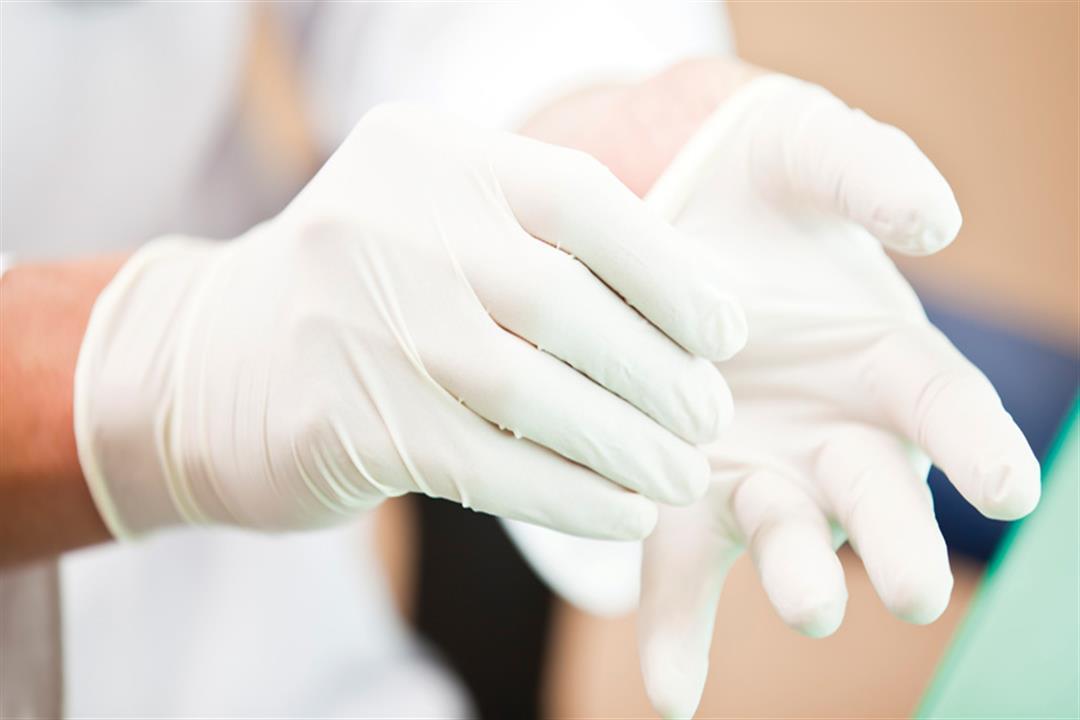A Decrease font size.A Reset font size.A Increase font size.
Amman - Tomorrow - The Bulletin of the Institute for Family Health Care, King Hussein Foundation, today, Tuesday, talks about the importance of using medical gloves, in light of the outbreak of the Corona virus, which needs precautionary measures to prevent it and limit its spread. The Institute’s bulletin provides important advice when using gloves, To protect health personnel and patients from infection, indicating the most common types of gloves, and when they are recommended for use. Medical gloves are an example of personal protective equipment that is used to protect the wearer and/or patient from the spread of infection or disease, and is part of an infection control strategy. Medical gloves are commonly as follows: Sterile gloves: used by medical staff for surgery and deep interventions, and they are characterized by being new and sterile and used only once, and each glove is individually wrapped. Non-sterile gloves: This type of glove is characterized by being non-sterile and used only once. It is disposed of after use and these gloves are often not packaged in separate packages. They are used when directly exposed to blood or other body fluids from a sick person. Heavy-Duty Gloves: These gloves are used when carrying out cleaning work. These gloves can be reused again after being properly disinfected, while they must be disposed of if they are punctured or torn. For the general public In most situations, such as performing daily functions, wearing gloves is not necessary. The CDC recommends wearing gloves when cleaning or caring for a sick person: When cleaning: Because you may touch surfaces on which the virus is present when cleaning and disinfecting your home, it is best to wear gloves. Follow the precautions listed on the product labels for the disinfectants you use. If gloves are allowed to be reused or must be disposed of. When caring for a sick person: If you are caring for a sick person at home or elsewhere who may come into contact with blood, faeces, or body fluids such as saliva and vomit, use disposable gloves Cleaning and disinfecting the area around the sick person or other frequently touched surfaces in the home is essential. Tips for using gloves: – Wash your hands before putting on and after putting on gloves: Wash your hands with soap and water for 20 seconds (or use a hand sanitizer containing at least 60% alcohol).- Make sure your gloves are suitable for you to wear comfortably during all the jobs you do.- Some people are allergic to the natural rubber known as latex used in some medical gloves, if you or your patient has an infection Allergic to natural rubber, you should choose gloves made of other synthetic materials such as PVC, nitrile or polyurethane. – Know that sharp objects can puncture medical gloves: always change your gloves if torn or punctured.- Never reuse or wash and sterilize medical gloves if they are intended for single use.- Do not share medical gloves with other users.Hand hygiene and use of gloves: Wearing gloves does not replace the need for hand hygiene, as gloves It does not provide complete protection against hand contamination. Microorganisms may get into people's hands through small imperfections in gloves, or by contaminating hands while removing them. Hands can be cleaned with soap and water or with hand sanitizers. A hand sanitizer is a substance that is applied to the hands for the purpose of removing common pathogens and is recommended when soap and water are not available to wash hands. Depending on the active ingredient used, hand sanitizers can be classified into two types: either alcohol-free or alcohol-free. of alcohol. Alcoholic products contain 60-95% alcohol, usually in the form of ethanol, isopropanol, etc. Non-alcoholic products generally rely on disinfectants, such as benzalkonium chloride, or on antimicrobial agents such as triclosan. Many hand sanitizers also contain an emollient (such as glycerin) that soothes the skin, as well as some aromatics.
2:29 PM 10-13-2020 Share it Facebook Twitter LinkedIn WhatsApp Via mail Print
